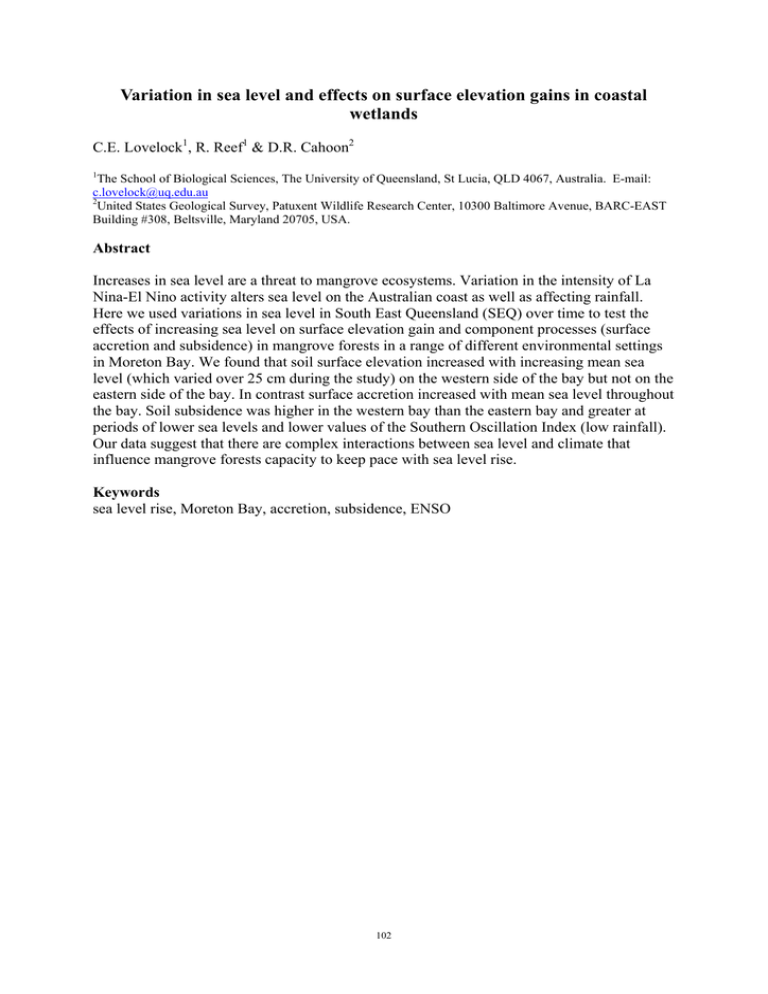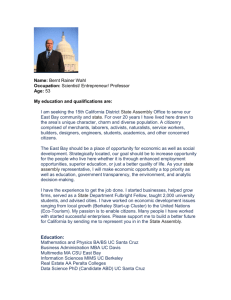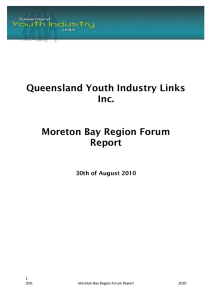Variation in sea level and effects on surface elevation gains... wetlands C.E. Lovelock
advertisement

Variation in sea level and effects on surface elevation gains in coastal wetlands C.E. Lovelock1, R. Reef1 & D.R. Cahoon2 1 The School of Biological Sciences, The University of Queensland, St Lucia, QLD 4067, Australia. E-mail: c.lovelock@uq.edu.au 2 United States Geological Survey, Patuxent Wildlife Research Center, 10300 Baltimore Avenue, BARC-EAST Building #308, Beltsville, Maryland 20705, USA. Abstract Increases in sea level are a threat to mangrove ecosystems. Variation in the intensity of La Nina-El Nino activity alters sea level on the Australian coast as well as affecting rainfall. Here we used variations in sea level in South East Queensland (SEQ) over time to test the effects of increasing sea level on surface elevation gain and component processes (surface accretion and subsidence) in mangrove forests in a range of different environmental settings in Moreton Bay. We found that soil surface elevation increased with increasing mean sea level (which varied over 25 cm during the study) on the western side of the bay but not on the eastern side of the bay. In contrast surface accretion increased with mean sea level throughout the bay. Soil subsidence was higher in the western bay than the eastern bay and greater at periods of lower sea levels and lower values of the Southern Oscillation Index (low rainfall). Our data suggest that there are complex interactions between sea level and climate that influence mangrove forests capacity to keep pace with sea level rise. Keywords sea level rise, Moreton Bay, accretion, subsidence, ENSO 102


